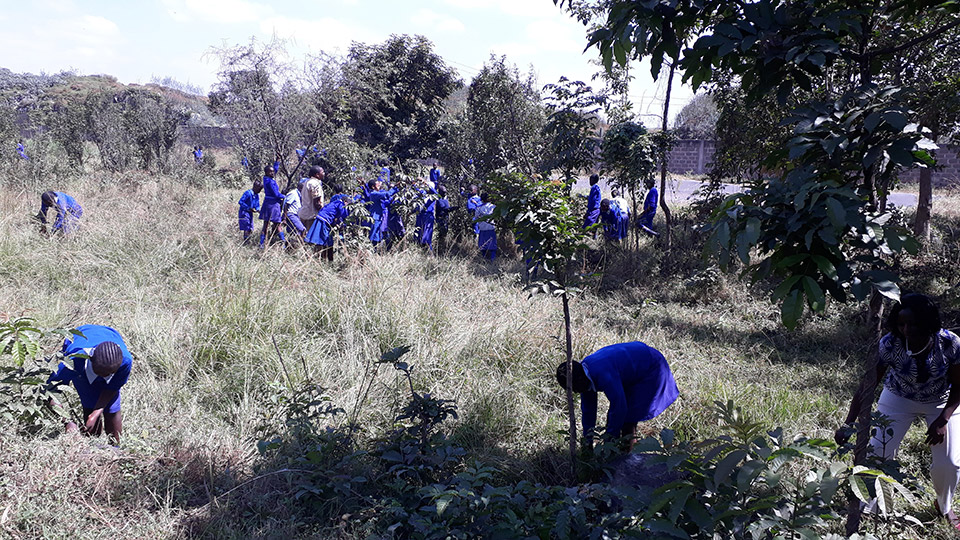
The scientific consensus is very clear: Climate change is one of the most vexing challenges of the 21st century. Young people are highly vulnerable to the negative effects of climate change, which is why young people around the world are standing up and taking action.
In a highly publicized event last Sunday, motivated young people behind Zero Hour advocated for concrete solutions to stop climate change and took to the streets of Washington agitating for immediate, common sense climate change legislation.
The Zero Hour movement is not an isolated case. Far away in Kenya, taking a cue from their peers, young people are also taking action to protect the environment. Students of Wangu primary school, a pioneer CWS-supported School under the Safe Zone (SSZ) program, know pretty well what a clean environment means for their access to education. Wangu school is located next to Nairobi city’s main landfill Dandora, which receives all kinds of filthy and untreated waste on a daily basis. Because of this, the more than 2,700 students of Wangu school have become powerful agents of climate resilience.
“The students are organized into various clubs such as Environmental, Entrepreneurship and 4K club which does small scale farming in the school,” says the school head teacher Madam Christine Mutua.
The environmental club’s 50 members have planted trees in the school compound, and members spend their free time either weeding or watering their trees.
“In the past, the situation was really appalling, especially during the rainy season. The students had to make do with the stench coming out of the dumpsite. Over time, the students planted trees that have purified the air we breathe,” she added. The students also act as environmental ambassadors within the larger neighborhoods by participating in the monthly community clean up exercises under the guidance of their patron.
The entrepreneurship club is involved in soap and lotion making, the proceeds of which go towards buying clothes for needy students and supporting their feeding program in school. Lastly, the 4K club is involved in cultivation of bananas and cucumber in the school farm.
As we walked around the school compound, Mrs. Mutua attributed the success of the student movement to the teamwork and hard work among the school teachers, noting that her teachers have owned the programs and are determined to go beyond the academics to nurture and ingrain critical life skills to the students.
Prepared by Caleb Wafula, Information Specialist, CWS Africa
